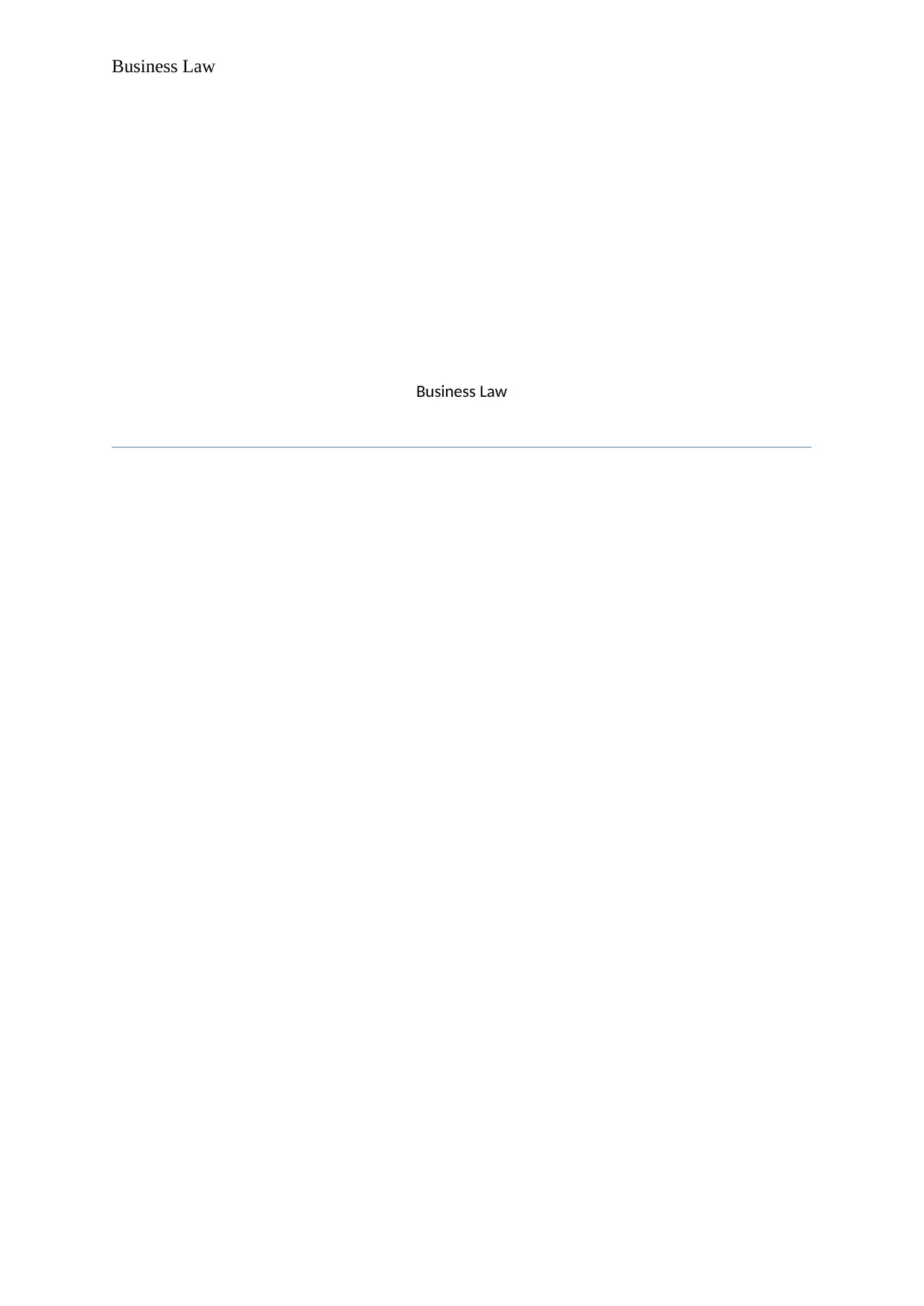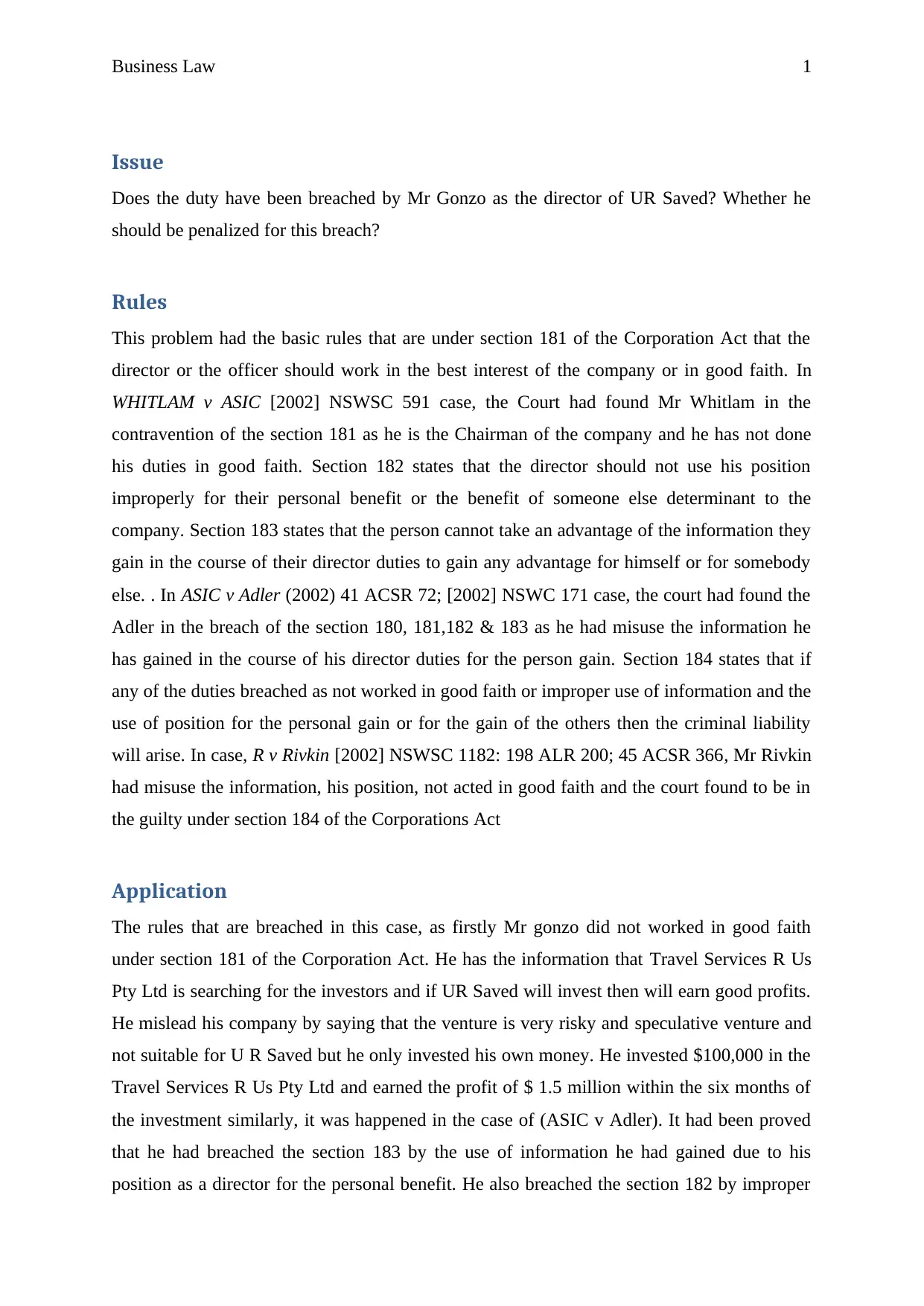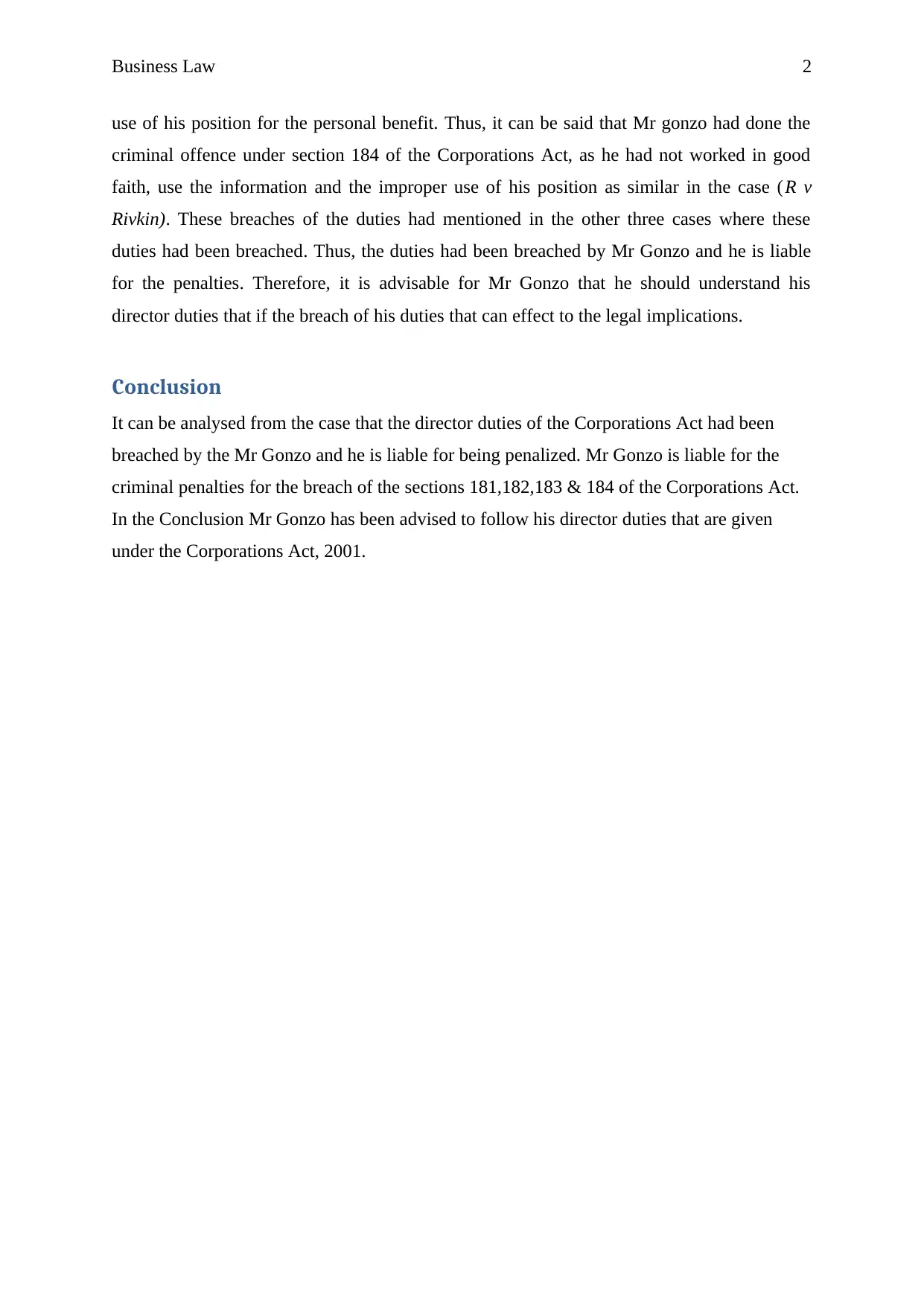Business Law Case Study: Gonzo's Director Duty Breach and Penalties
VerifiedAdded on 2023/06/04
|3
|699
|430
Case Study
AI Summary
This case study analyzes a business law problem concerning Mr. Gonzo, a director of UR Saved Pty Ltd, and his potential breach of director duties under the Corporations Act. The analysis examines whether Mr. Gonzo acted in good faith and in the best interests of the company when he learned about an investment opportunity with Travel Services R Us Pty Ltd. The solution applies relevant sections of the Corporations Act, including sections 181, 182, 183, and 184, and compares the situation to precedents like WHITLAM v ASIC and ASIC v Adler, and R v Rivkin. The assignment concludes that Mr. Gonzo breached his duties and is liable for penalties due to his failure to act in good faith, misuse of information, and improper use of his position for personal gain, ultimately advising him on the importance of adhering to director duties to avoid legal implications. The case highlights the importance of ethical conduct and the potential legal ramifications of conflicts of interest in corporate governance.
1 out of 3










![[object Object]](/_next/static/media/star-bottom.7253800d.svg)